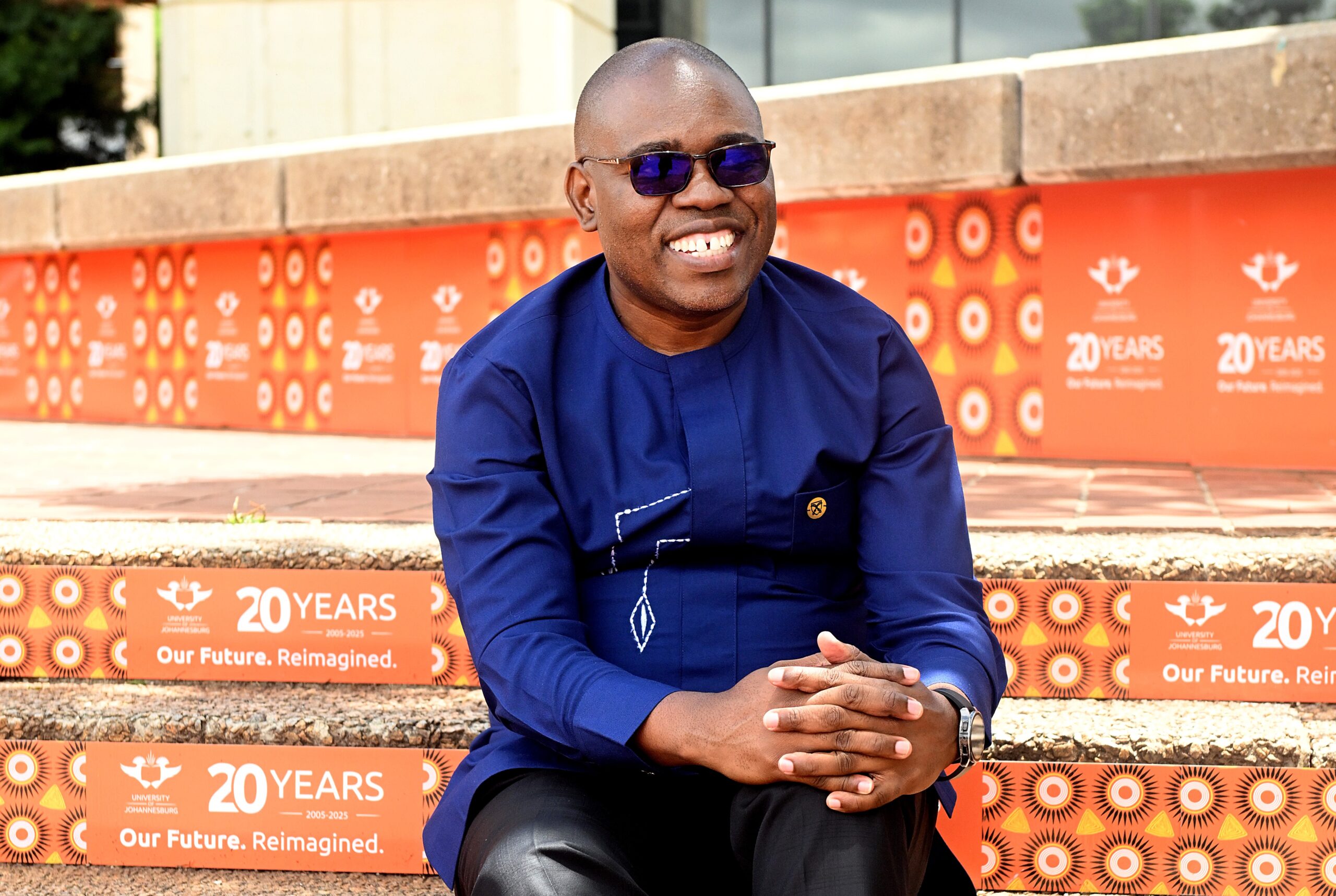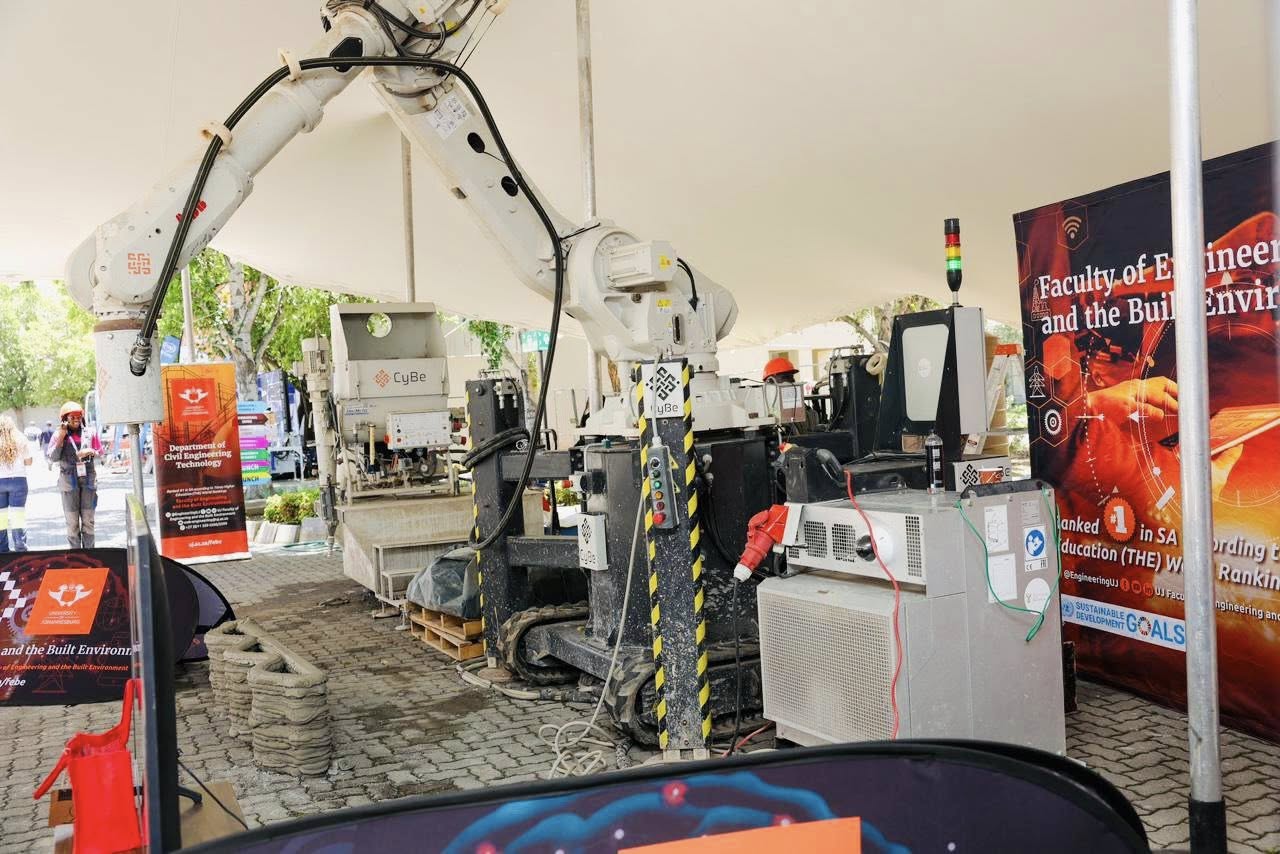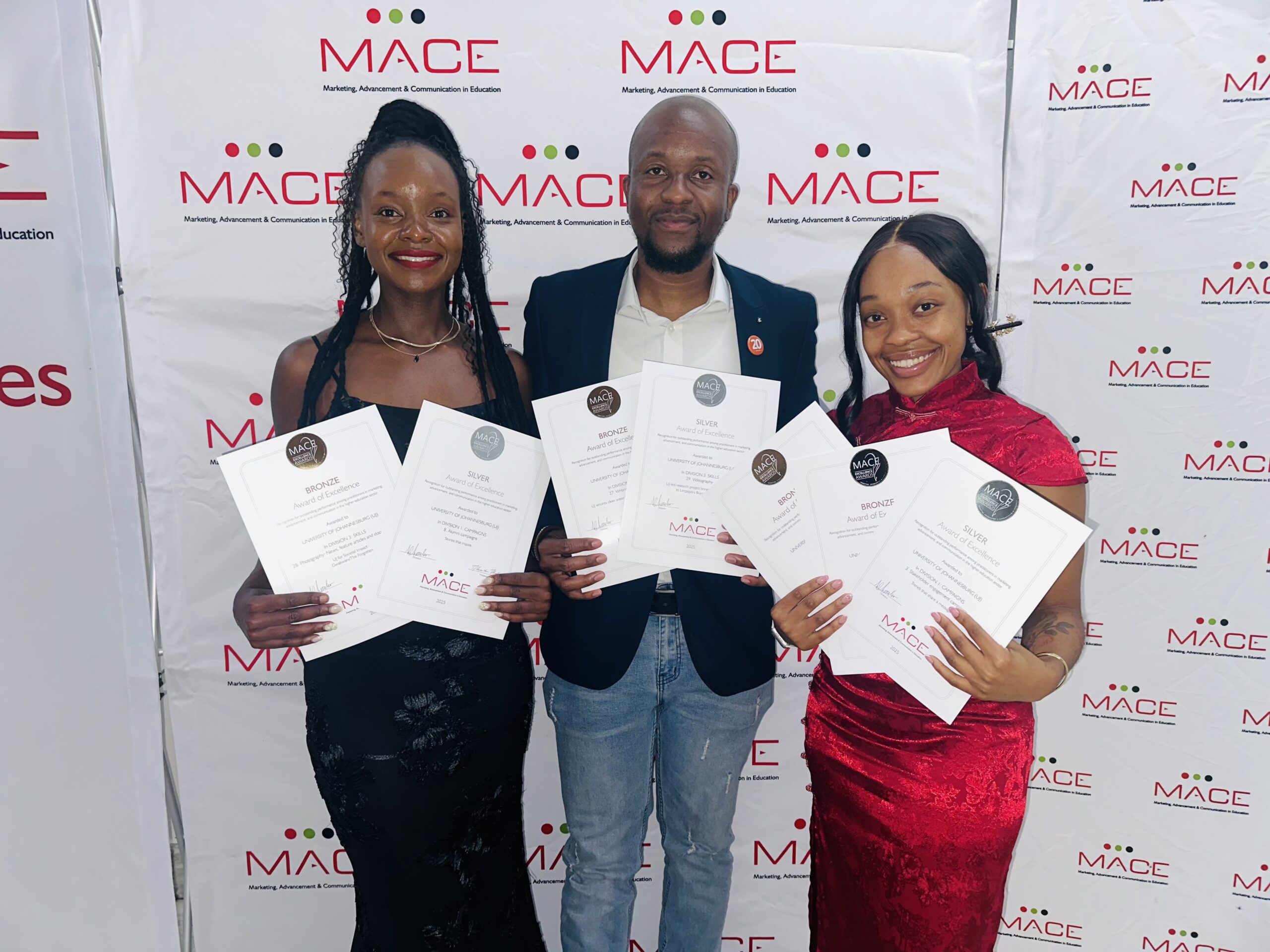The University of Johannesburg (UJ) ’s culture of excellence took centre stage at this year’s Vice-Chancellor’s Distinguished Awards for Teaching, Research, Innovation and Service, held on Wednesday, 13 November 2025, at the University’s School of Tourism and Hospitality (STH).
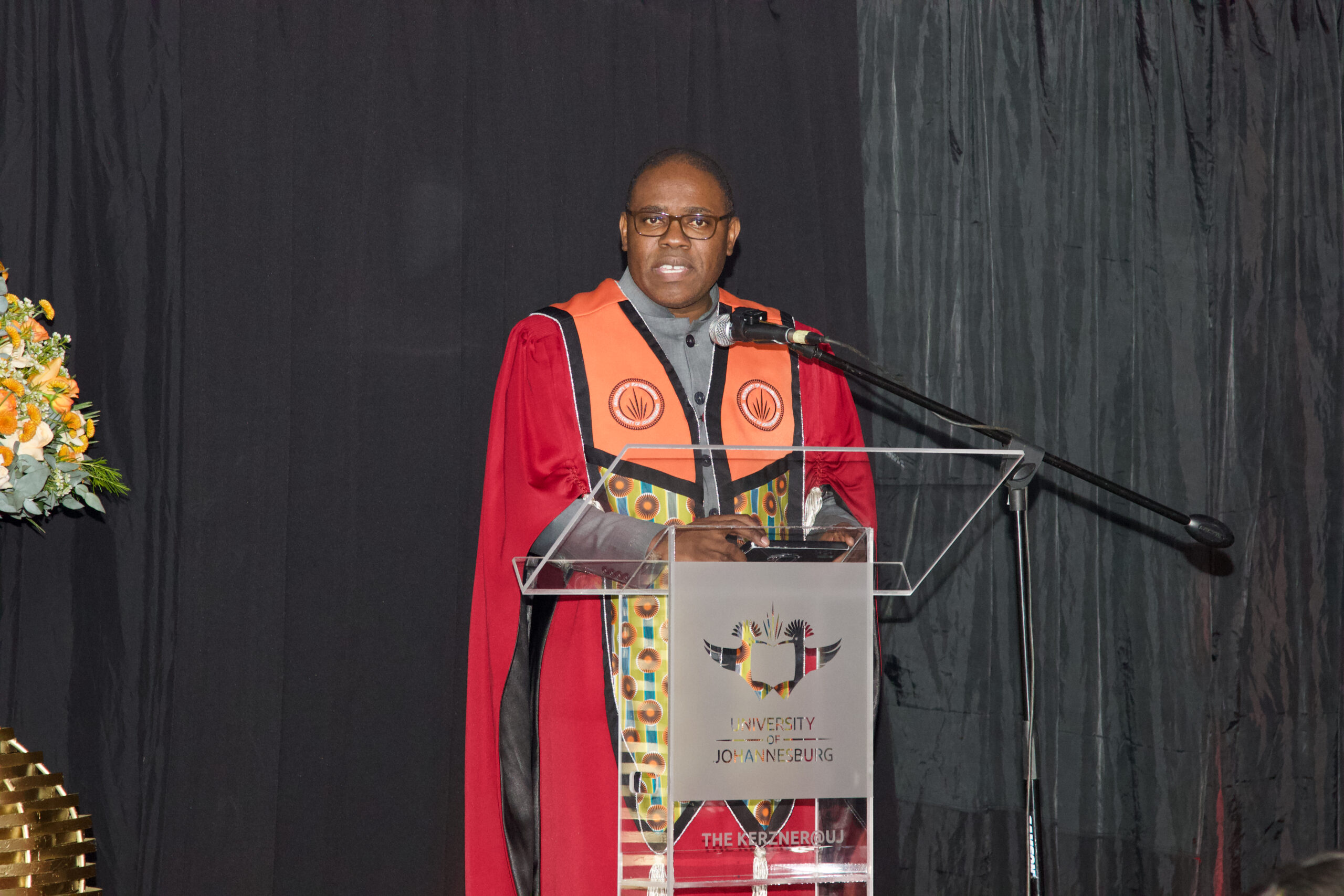
“UJ’s strength lies not in our buildings, not in our rankings, neither does it lie in our strategic plans. Our strength lies in our people, many of whom are in the room this evening. Those that we’ll be celebrating this evening are a sample of the calibre of people we have at this great University. The secret here, is the refusal of the UJ Community to accept mediocrity,” said Professor Letlhokwa Mpedi, Vice-Chancellor and Principal of UJ when he addressed staff, award recipients and guests during the annual ceremony that celebrated excellence in teaching, research, innovation and service.
The event reaffirmed UJ’s commitment to reimagining the future through people who make a difference, those whose work extends beyond the ordinary to inspire progress and impact within and beyond the University community.
The ceremony was guide by Dr Gloria Castrilion, Senior Director: Teaching Excellence who was the evening’s MC.
The ceremony brought together members of the academic and professional community to recognise individuals whose achievements exemplify UJ’s vision of innovation, transformation and service excellence.
The 2025 Vice-Chancellor’s Distinguished Awards recipients are:
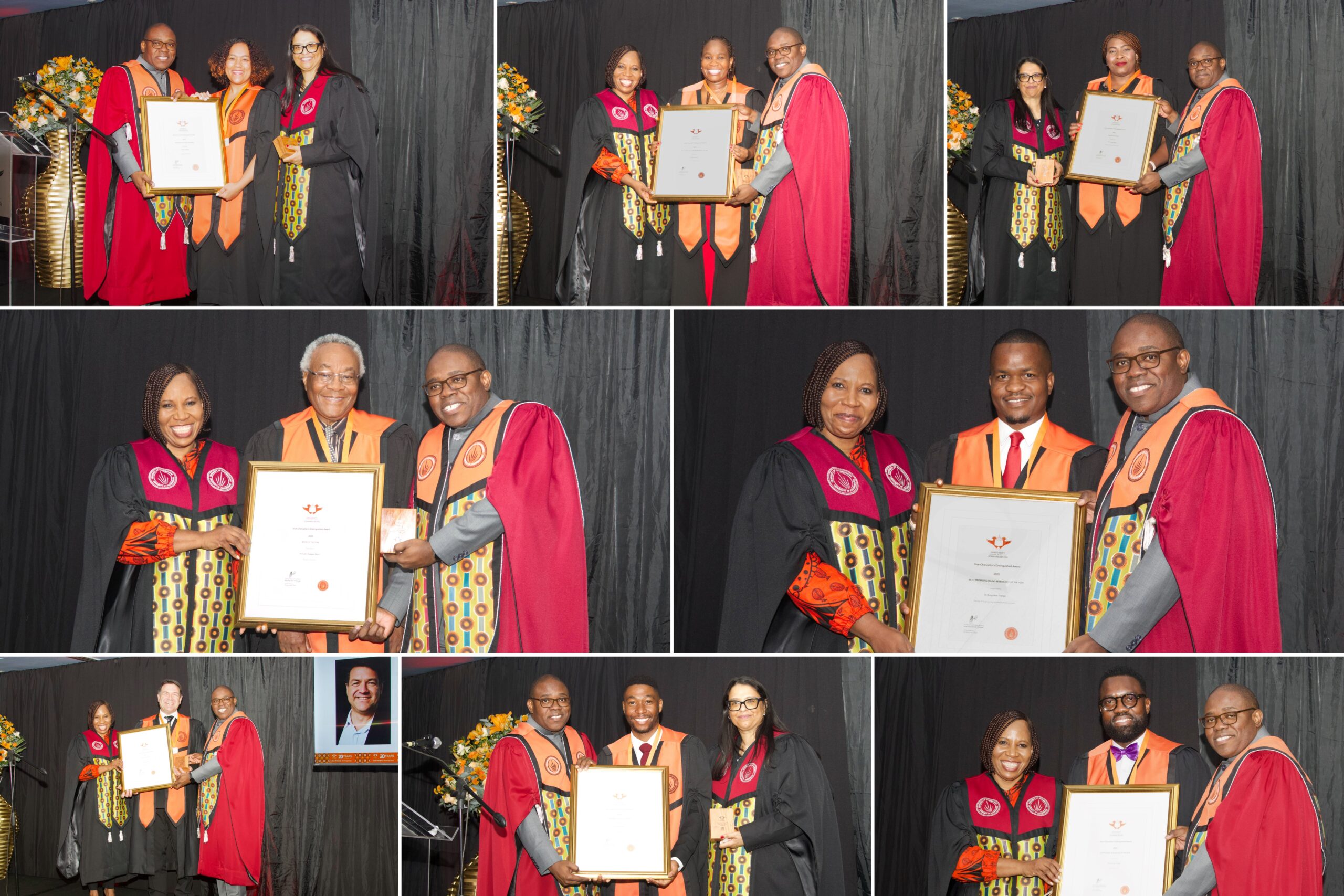
Most Promising Young Teacher of the Year
Dr Tumisi Molelekoa, Faculty of Science
Dr Molelekoa has distinguished himself through an energetic, hands-on approach that makes complex scientific principles accessible to students. His commitment to creating interactive and inclusive learning spaces has significantly improved student engagement and performance.
Dr Devon Bailey, Faculty of Humanities
A passionate educator, Dr Bailey connects academic learning to real-life contexts through reflective discussion and community engagement. Her classroom is a space of dialogue that encourages critical thinking and empathy.
Teacher Excellence
Professor Chioma Okoro, College of Business and Economics
Professor Okoro’s innovative teaching blends academic rigour with real-world application. She promotes active learning and mentorship, developing graduates who are analytical, adaptable and ready to lead in a changing global economy.
Most Promising Young Researcher
Dr Bonginkosi Thango, Faculty of Engineering and the Built Environment
His research bridges engineering, artificial intelligence, and sustainability, producing high-quality scholarly outputs and innovations that address African challenges while enhancing UJ’s global profile.
Dr Edith Phalane, Faculty of Health Sciences
Dr Phalane’s biomedical research focuses on developing health interventions that respond to Africa’s unique healthcare challenges. Her work bridges laboratory research and real-world health impact, positioning her as a future leader in medical science.
Outstanding Researcher of the Year
Professor Olaniyi Fawole, Faculty of Science
Professor Fawole is internationally recognised for his research in food science and postharvest technology. His studies focus on agricultural sustainability and value chains contribute to food security and align with UJ’s global research priorities.
Innovation of the Year
Professor Eduard Venter, Faculty of Science
Professor Venter’s pioneering research in molecular biology and biotechnology is paving new paths in sustainable agricultural practices. His forward-thinking approach reflects UJ’s commitment to research that drives real-world solutions.
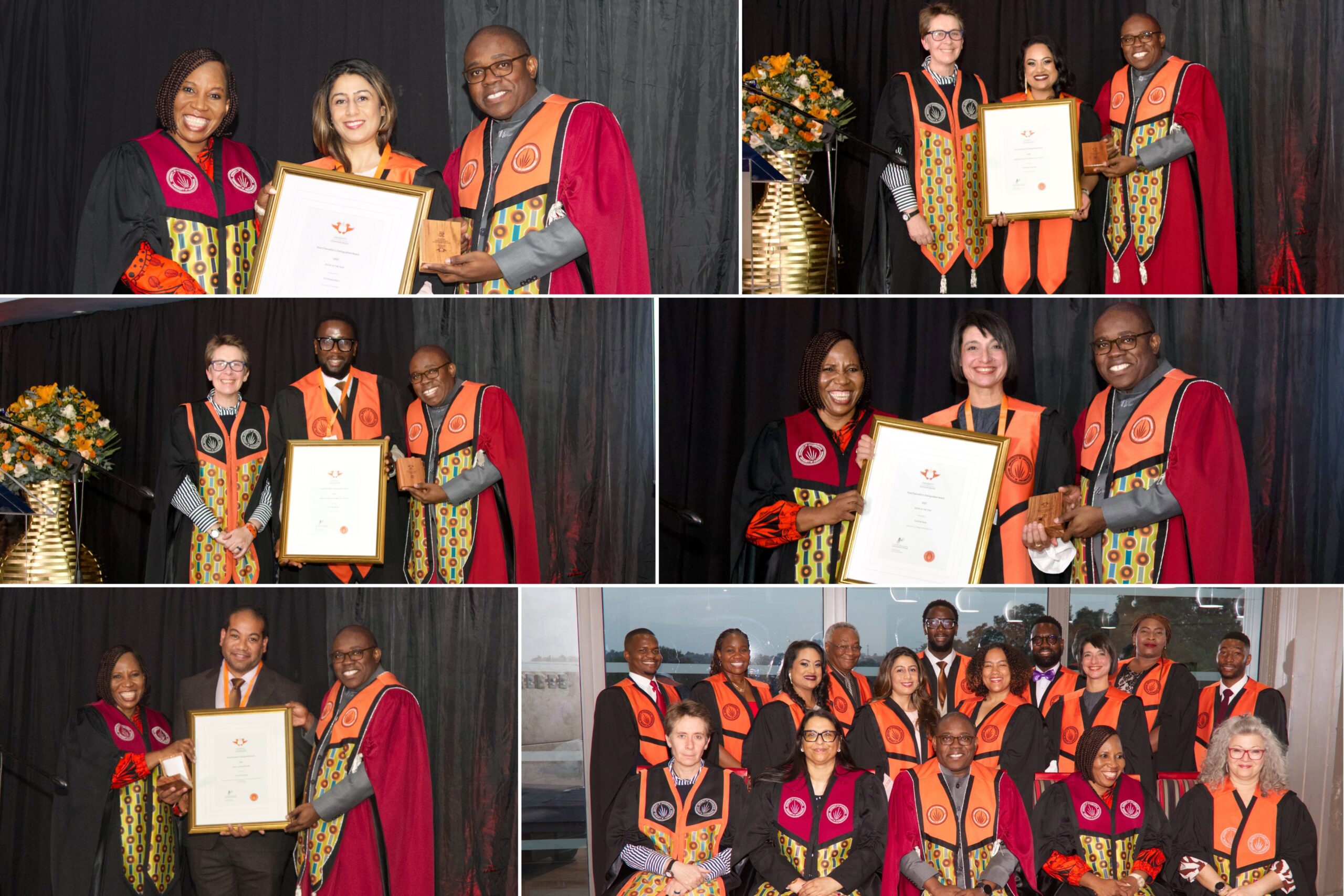
Book of the Year
Professor John Ndegwa Maina, Faculty of Science
Explaining why and how birds are a profoundly interesting and biologically important animal group, the 384-page Book entitled Current Perspectives on the Functional Design of the Avian Respiratory System (Springer, 2023) was purposely written for practicing (working = active) researchers, postgraduate students, ornithologists and even members of the public who may seek to understand the functional biology of birds, specifically regarding respiration.
Professor Maina’s publication provides deep insight into environmental physiology and biological systems. It makes an important contribution to the scientific community.
Professor Faeeza Ballim, Faculty of Humanities
Apartheid’s Leviathan: Electricity and the Power of Technological Ambivalence (Ohio University Press, 2023) details the development of an interconnected technological system of a coal mine and two coal-fuelled power stations—the Matimba and Medupi power stations—in the Waterberg, a rural region of South Africa that lies near to the country’s border with Botswana. The book follows these developments from the late 1960s, a period of heightened repression as the apartheid government attempted to realise its vision of racial segregation, to the deeply fraught construction of the Medupi power station in post-apartheid South Africa.
Professor Ballim’s book offers a nuanced look at social transformation in South Africa. It combines historical scholarship with contemporary relevance and critical analysis.
Professor Ruth Sacks, Faculty of Art, Design and Architecture
Congo Style: From Belgian Art Nouveau to African Independence presents a postcolonial approach to discussing the visual culture of two now-notorious regimes: King Leopold II’s Congo Colony and the state sites of Mobutu Sese Seko’s totalitarian Zaïre. Readers are brought into the living remains of sites once made up of ambitious modernist architecture and art in Kinshasa, Democratic Republic of Congo. From the total artworks of Art Nouveau to the aggrandising sites of post-independence Kinshasa, Congo Style investigates the experiential qualities of man-made environments intended to entertain, delight, seduce, and impress.
Professor Sacks’ publication explores the intersection of art, design and storytelling, reimagining the power of creative disciplines to shape social and cultural narratives.
Highest Cited Researcher
Professor Sherali Zeadally, Distinguished Visiting Professor, Faculty of Science
Professor Sherali Zeadally, Distinguished Visiting Professor in the Academy of Computer Science and Software Engineering within the Faculty of Science, is ranked among the world’s most influential computer scientists. Through his affiliation with the University of Johannesburg, Professor Zeadally continues to advance the institution’s global research visibility.
Service Beyond the Normal Call of Duty
Ms Melissa Teshane Haripersad, Corporate Governance
Mrs Melissa Teshane Haripersad has shown remarkable leadership, innovation, and dedication in her role as Senior Manager within the Corporate Governance Division. Mrs Haripersad’s contributions clearly extend beyond her formal duties and have strengthened both UJ’s operational performance and stakeholder experience, making her a deserving winner of this award.
Mr Tebello Modupi, Faculty of Education
Mr Tebello Modupi has demonstrated exceptional initiative, analytical skill, and innovation in leading aspects of a complex administrative and financial project at UJ. His commitment to excellence, innovation, and the broader academic mission of UJ has had a measurable and lasting impact across both academic and administrative domains, making him a highly deserving winner for this award.
In his closing remarks, Prof Mpedi took the opportunity to congratulate the prize winners again and express his gratitude to the rest of the UJ Community for creating an enabling environment for success.
“Ladies and Gentlemen in your commitment to making a difference, that extends far beyond your own careers, you have contributed meaningfully to what makes us truly special as a University,” he said.
Watch the ceremony below:

